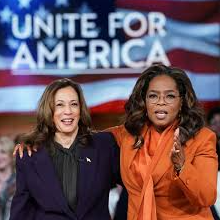
Organizers are shifting from virtual excitement to real-world get-out-the-vote efforts in a bid to boost Kamala Harris’ campaign.
When Joe Biden dropped out of the presidential race, Kamala Harris quickly became the focus of a surge of enthusiasm, fueled by a series of Zoom meetings that attracted hundreds of thousands of participants. These virtual gatherings, which initially aimed to energize supporters for Harris’ candidacy, are now evolving into grassroots mobilization efforts aimed at securing votes and support in key battleground states.
The Zoom meetings initially served as pep rallies for various affinity groups, such as Black women, Black men, white women, and even Taylor Swift fans, generating a wave of excitement that propelled Harris forward. Now, those same groups are focusing their energy on traditional campaign activities, including phone banking, door-to-door canvassing, and sending postcards to voters.
Jaime Lopez, director of digital coalitions for the Harris campaign, believes these volunteer-led networks will be instrumental in the race against Republican nominee Donald Trump. “They’re helping us mobilize and engage people in a way that we haven’t seen before, and they’re crucial to our path to victory,” Lopez said.
Zooms Spark New Volunteers
For many, the Zoom meetings were their first involvement in political organizing. Mary Catherine Tipton, a 33-year-old from Maryland, was one of many who joined a Zoom call for white women and found herself inspired to act. “We’ve got this privilege,” she said, reflecting on the opportunity to make a difference. Tipton, a former teacher, had been shocked by Trump’s victory in 2016 and didn’t want to experience the same feeling again.
Her involvement grew from there, as she and her friends began writing letters to undecided voters and eventually canvassing in Pennsylvania. “If my work moves the needle even a little bit, I’ll be happy,” Tipton said.
Black Women’s Zoom Lights the Fire
The spark for this grassroots movement was ignited on July 21, when Biden endorsed Harris. On that Sunday, Jotaka Eaddy, a consultant and investor, hosted a Zoom call for her organization, Win With Black Women, which had supported Harris in the past. The meeting, which started with hundreds of participants, quickly swelled to 44,000. Participants sang, prayed, and donated, raising over $1 million during the call.
Following this, other Zooms were organized for different groups, such as Black men (which raised $1.4 million) and white women, organized by gun control activist Shannon Watts. These calls not only rallied people but also helped build a lasting sense of community among Harris supporters.
Leah Greenberg, co-founder of the progressive advocacy group Indivisible, emphasized the importance of maintaining engagement after these initial Zooms. “We want to make sure they’re not just going to one Zoom,” Greenberg said, stressing the importance of turning virtual enthusiasm into sustained action.
Turning Enthusiasm into Action
Rachel Roberts, who attended one of the white women’s Zooms, described the experience as a “wake-up call.” She has since become more involved than ever before, organizing local events, writing postcards, and joining Zooms with other supporters. “It keeps the momentum going,” she said.
Groups like “Swifties 4 Kamala,” made up of Taylor Swift fans, have also become key players in outreach efforts, having made over 370,000 phone calls and sent 5.5 million texts in support of Harris. Annie Wu Henry, a digital strategist helping lead the group, noted that these efforts provide a more personal connection with voters compared to traditional outreach, which can sometimes feel too transactional.
Harris Campaign Embraces Volunteer-Led Zooms
Despite some initial mockery of the Zoom meetings, the Harris campaign has embraced the efforts of these volunteer-led groups, seeing their potential as a powerful grassroots force. Harris herself acknowledged the impact of these efforts during an event in Detroit with Oprah Winfrey in September. “There’s so much about our campaign that is really about fighting against forces that are trying to divide us,” Harris said. “You are showing that this is what the people want.”
Jotaka Eaddy, who leads Win With Black Women, expressed how much the movement meant to her, noting the profound sense of unity that these efforts have fostered. She carries a beaded friendship bracelet made by the Swifties as a daily reminder of the power of these grassroots networks. “This is extremely powerful,” she said.
As Harris supporters continue to transition from virtual rallies to physical activism, the real test will be whether this grassroots energy can translate into a strong voter turnout come Election Day. But for now, the enthusiasm sparked by those early Zoom meetings continues to drive a movement that is reshaping how campaigns connect with voters.









